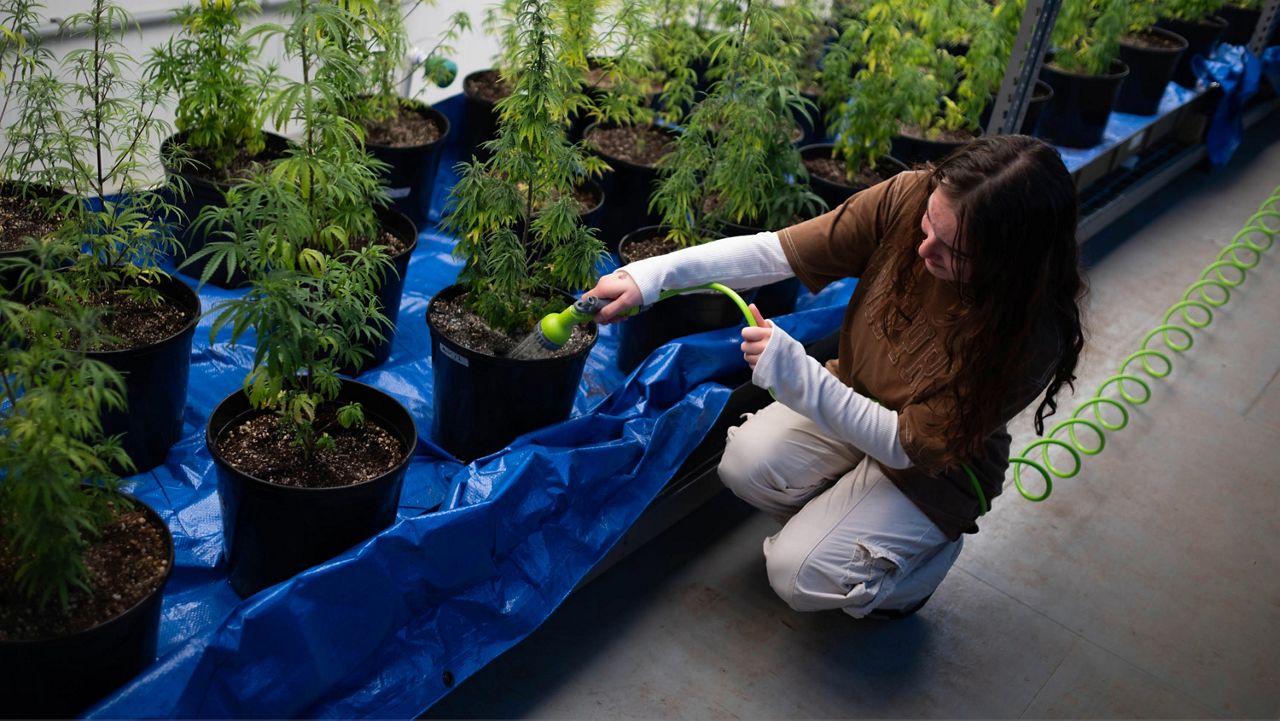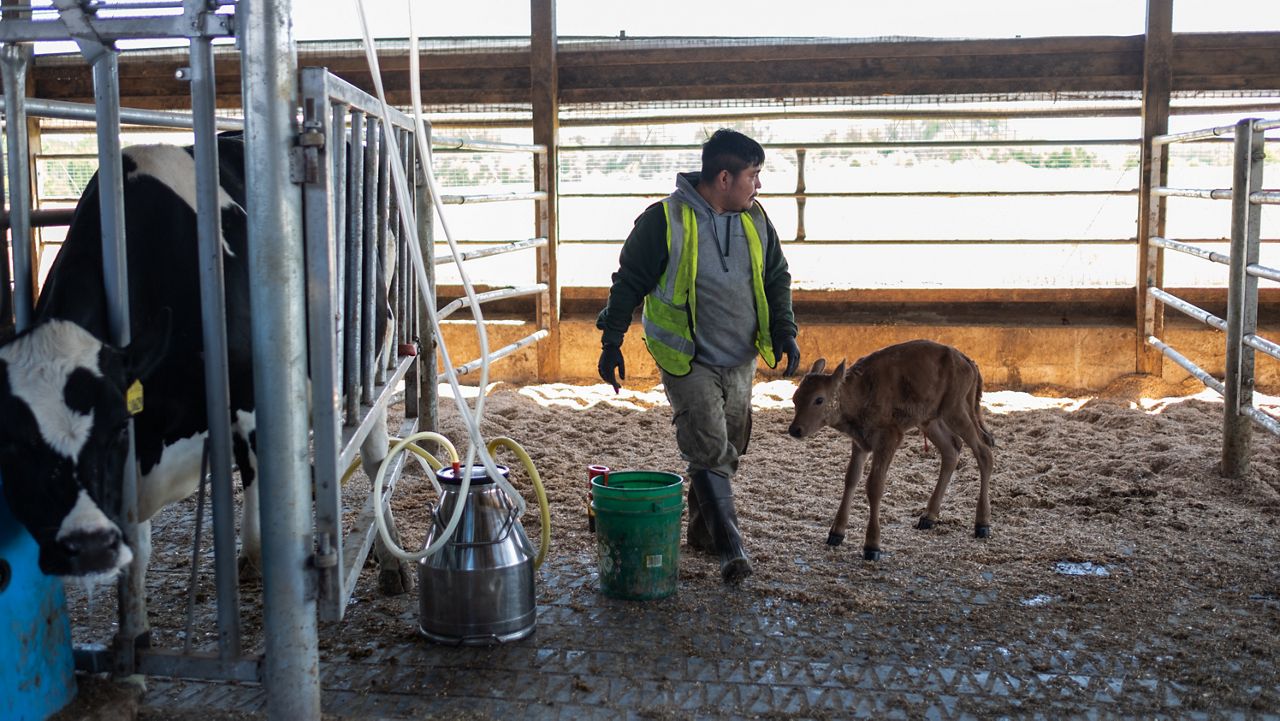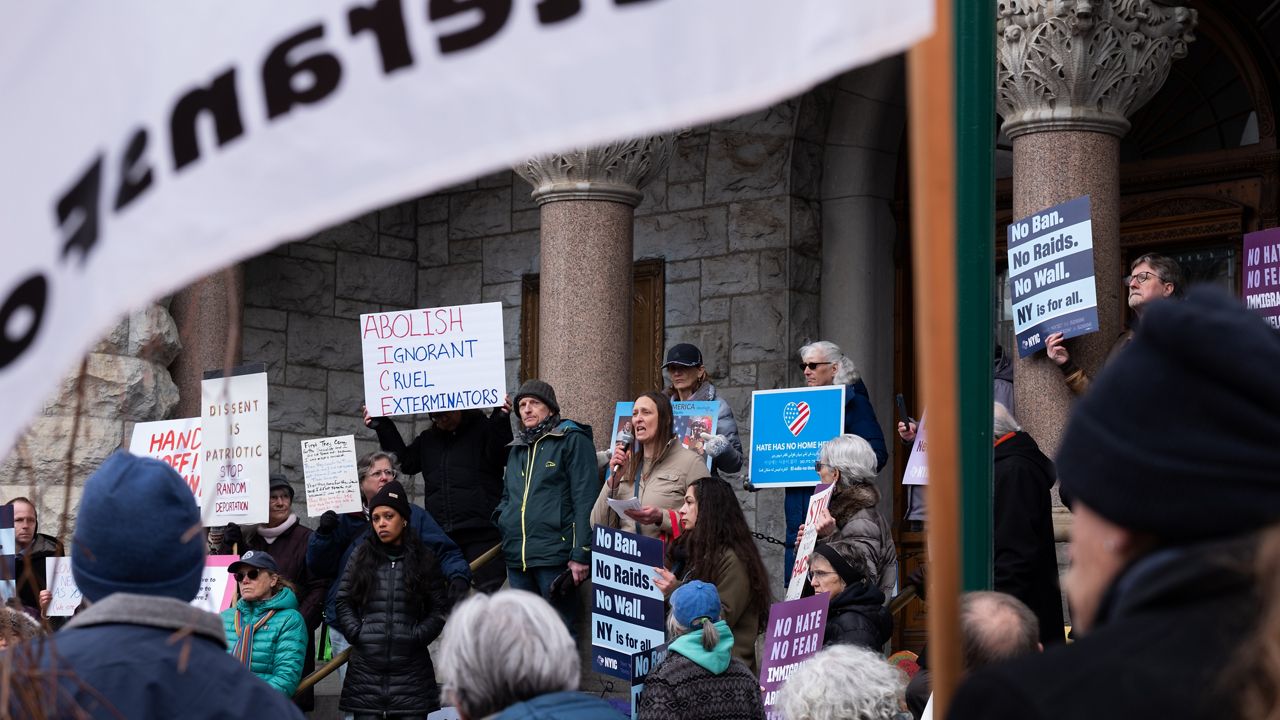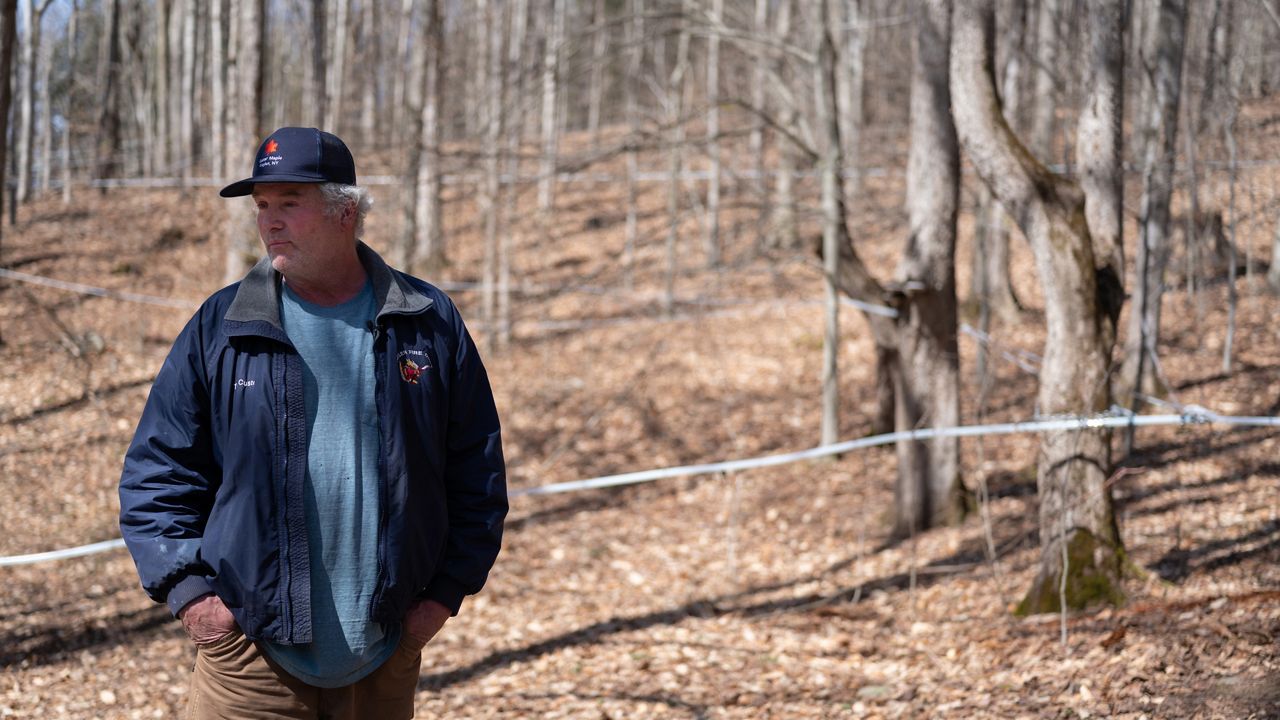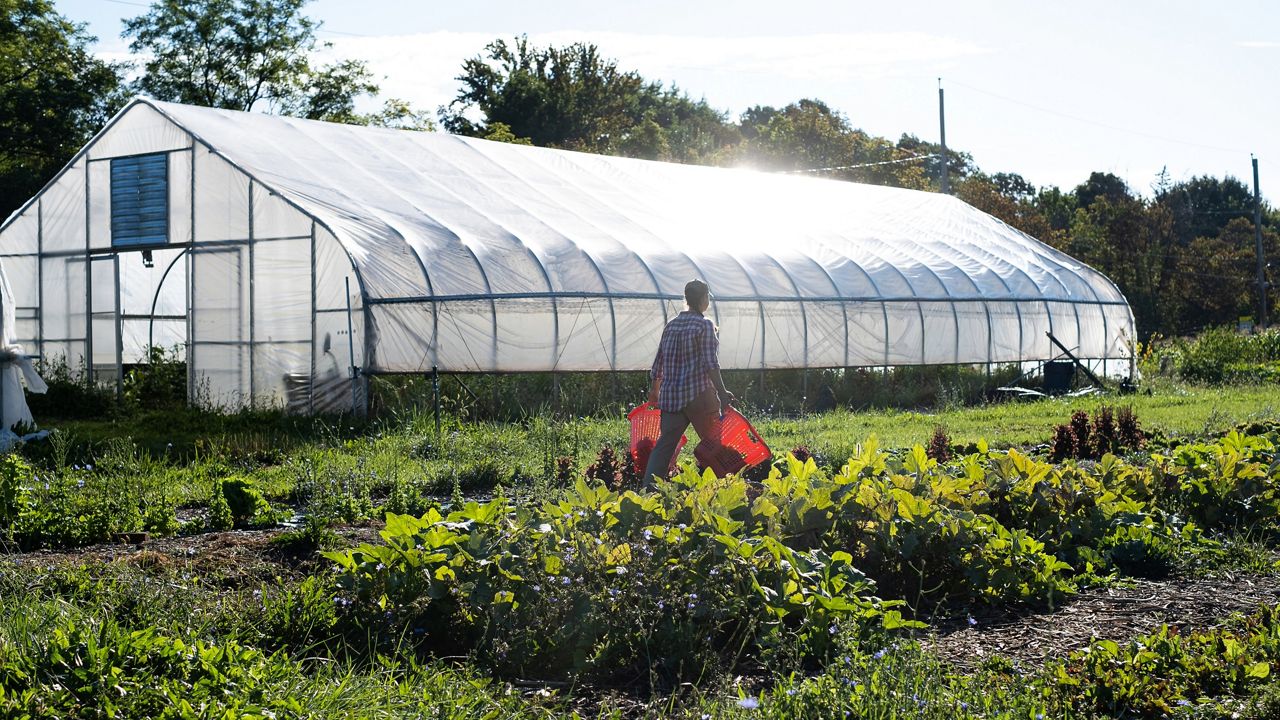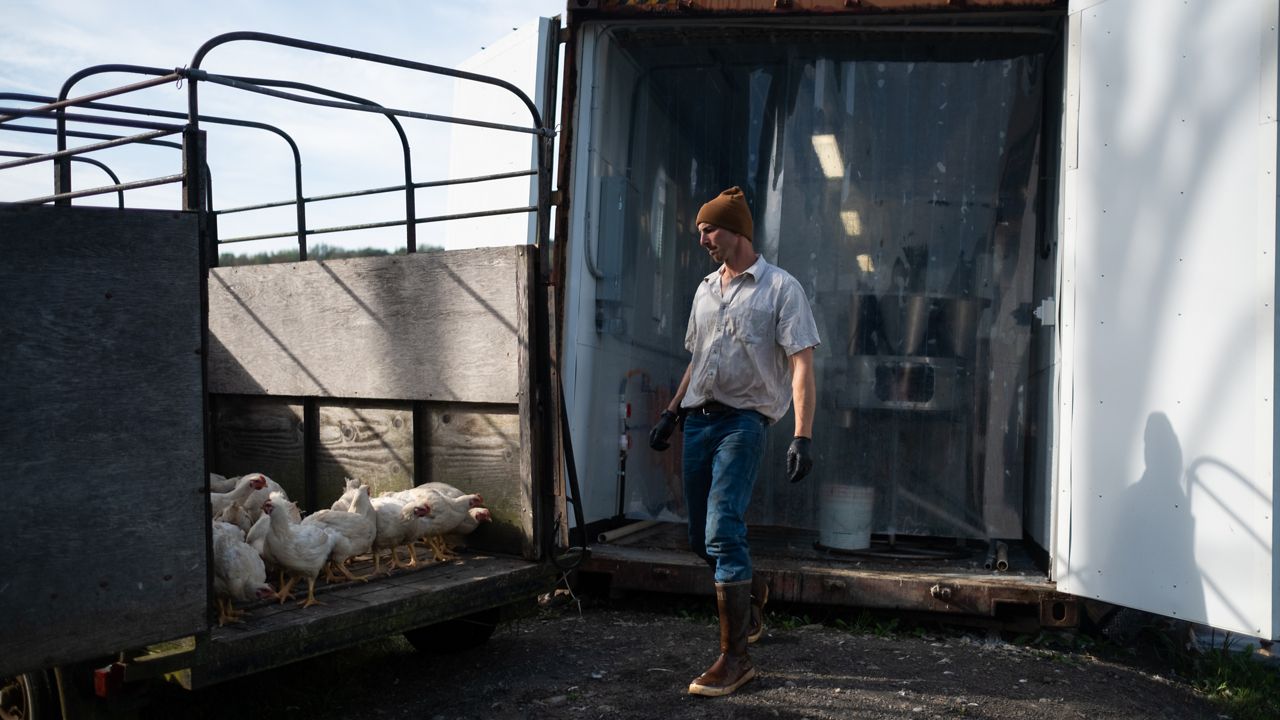With the help of a climate-controlled growing system, SUNY Morrisville students are supplying the U.S. Department of Agriculture with thousands of seeds to be distributed globally.
“You can control the temperature and the lights so if we have something that likes to grow in the summer, we can make it summer in here even if it’s cold outside,” said Lucy Dixon, an instructional support assistant for the horticulture department at SUNY Morrisville.
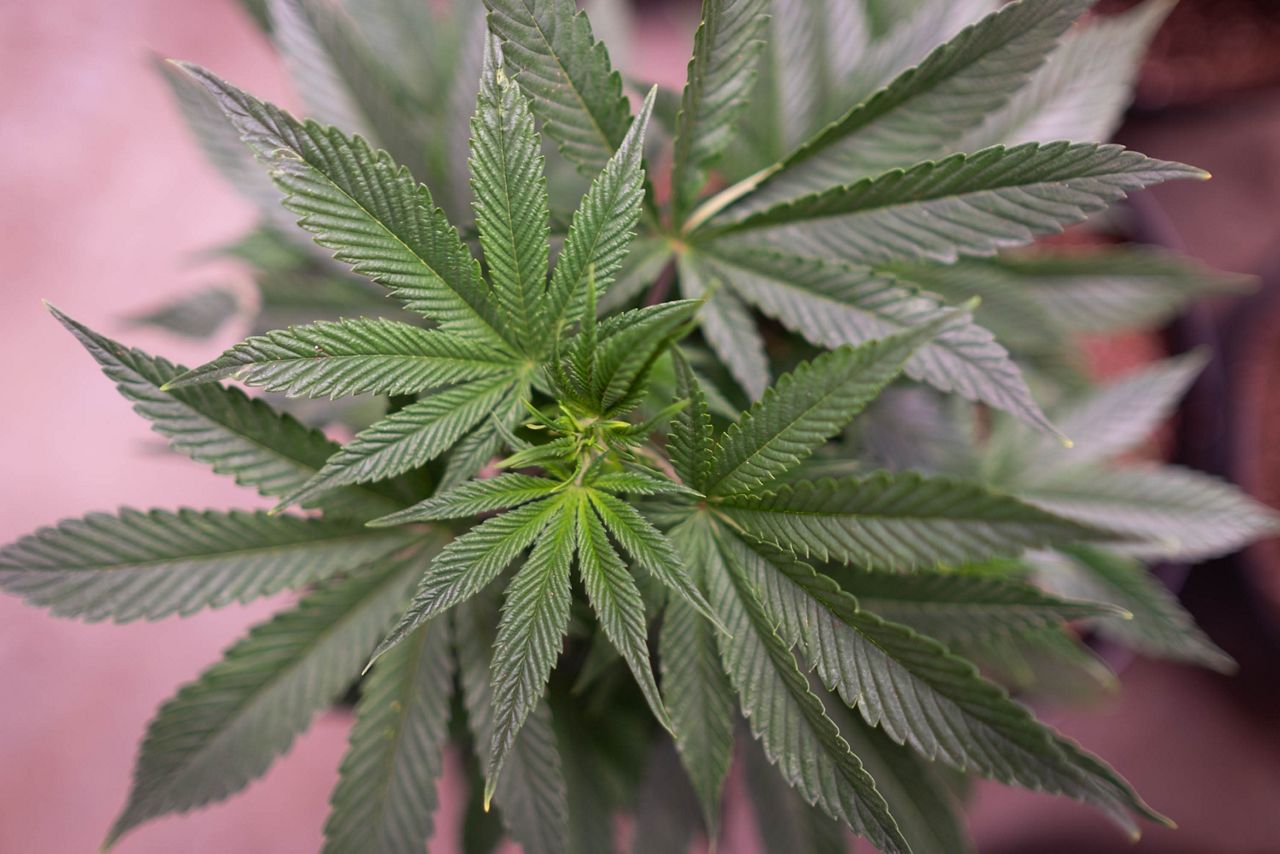
The Agricultural Research Service at the USDA collects specialty crop seeds from various producers that are considered genetically “pure” varieties that are then distributed around the world allowing more people to grow different varieties of specialty crops.
“You can never completely isolate when you are growing outside because of the wind,” Dixon said.
Typically, the crops that are grown in the pod would be impacted by wind pollination outdoors, but this controlled environment allows the plants to be isolated to prevent cross-pollination of different varieties and plants.
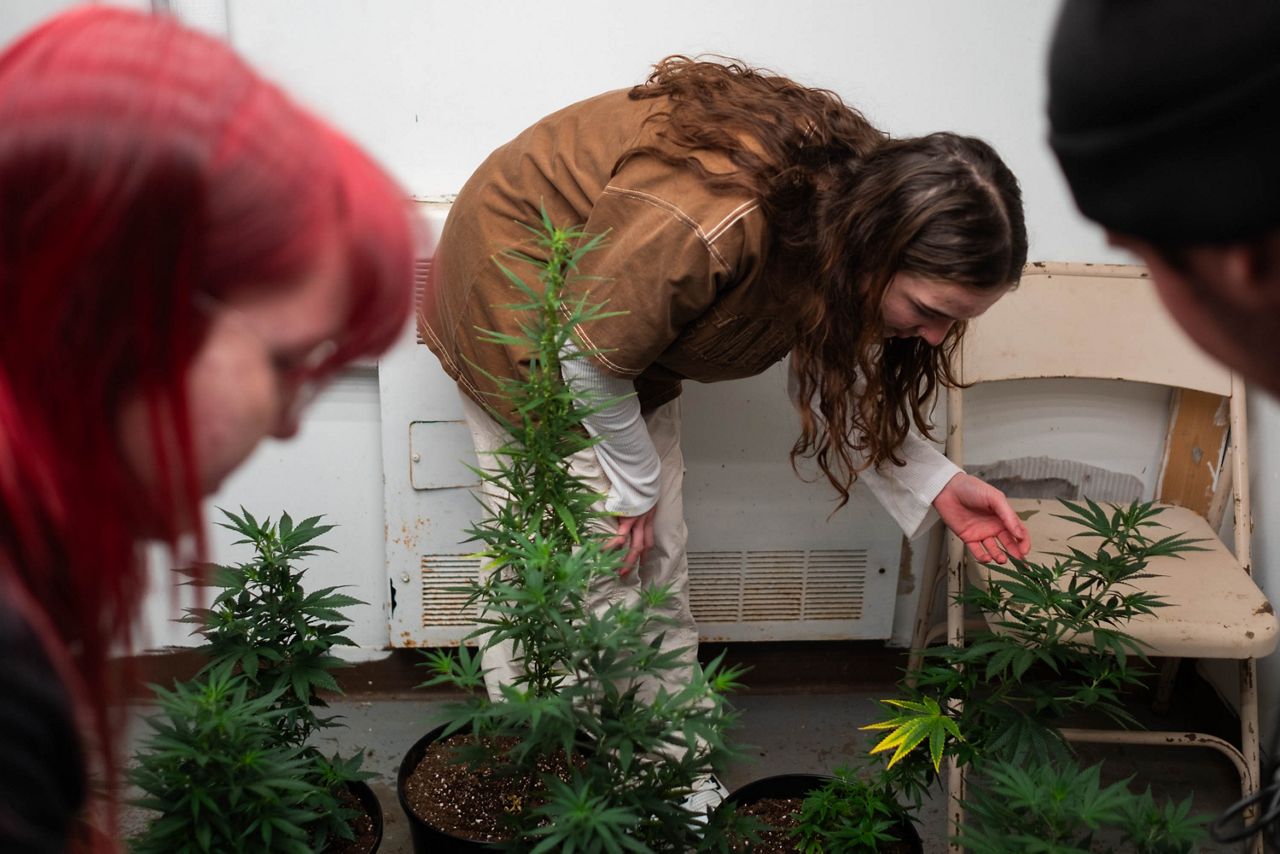
“We would not be able to do this without the pod. We’re going to have these growing all winter, if they were outside, they would be at the end of their lifecycle. You also have the benefit of there’s no pest pressure or environmental pressure, you don’t have those in here,” Dixon said.
Controlled environmental agriculture is an industry that is expanding as farmers experience the impact of a changing climate so learning how to use these pods is valuable for students that will enter the agricultural field, Dixon said.
Currently, they are growing a variety of hemp typically used for fiber production.
“This seed was given to us by the USDA ARS. Now we are growing it for them and will be returning the seeds to them to distribute through different seeds banks all over the world,” Dixon said.
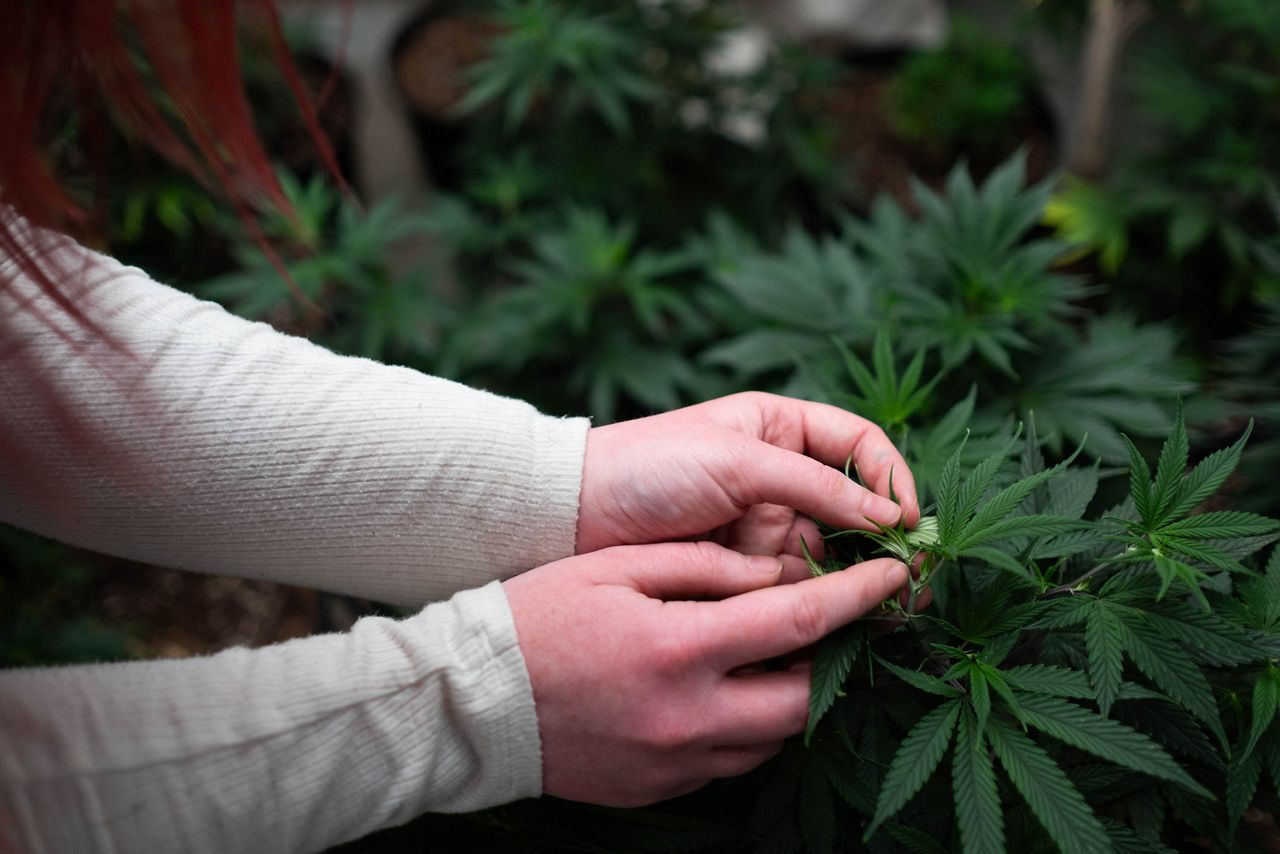
Over the summer, Dixon said they grew tomatoes and cabbage as well as other hemp varieties. The USDA sent them 100 seeds to plant, but they sent back nearly 20,000 by harvesting and saving the seeds the plants produce to be distributed.
In addition to supplying the USDA with these seeds, Morrisville students learn how to care for the crops and harvest the seeds, and how to determine different factors that are impacting the crops. For example, the hemp is currently exhibiting a yellowing on its leaves, a sign of distress in the plant.
“We were doing a process of elimination, what could be the cause of the yellowing on our leaves? At first, we were looking at different nutrient causes or possibly a bacteria or pathogen and then we determined it could maybe be the pH levels of the water we use,” said Ella Williams, a student working on the project.
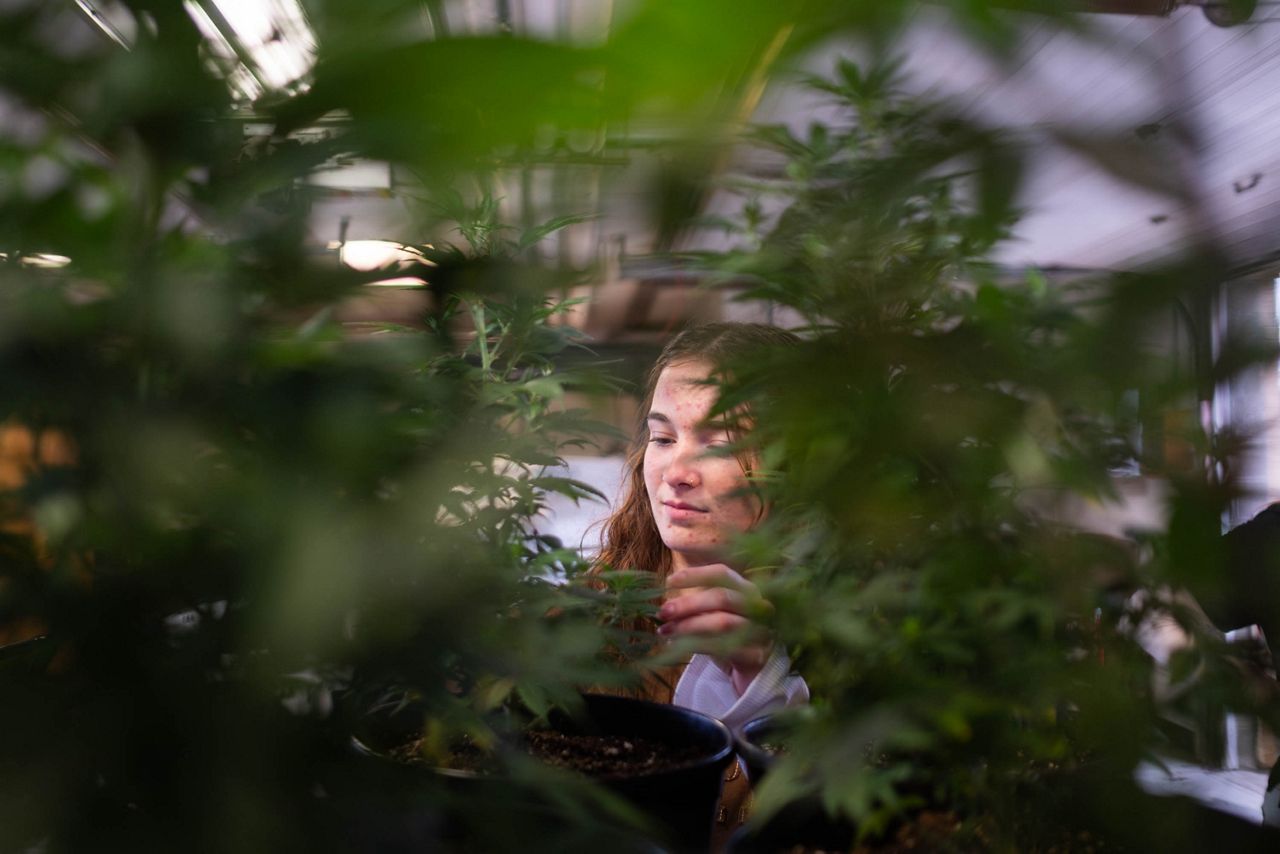
The grow pod opens hands-on experience for students, said Beau Bidwell, another student.
“The biggest thing is hands-on learning because we will use that in our future careers and such,” Bidwell said. “We can watch lecture slides and things like that, but the hands-on learning is a big part here.”





